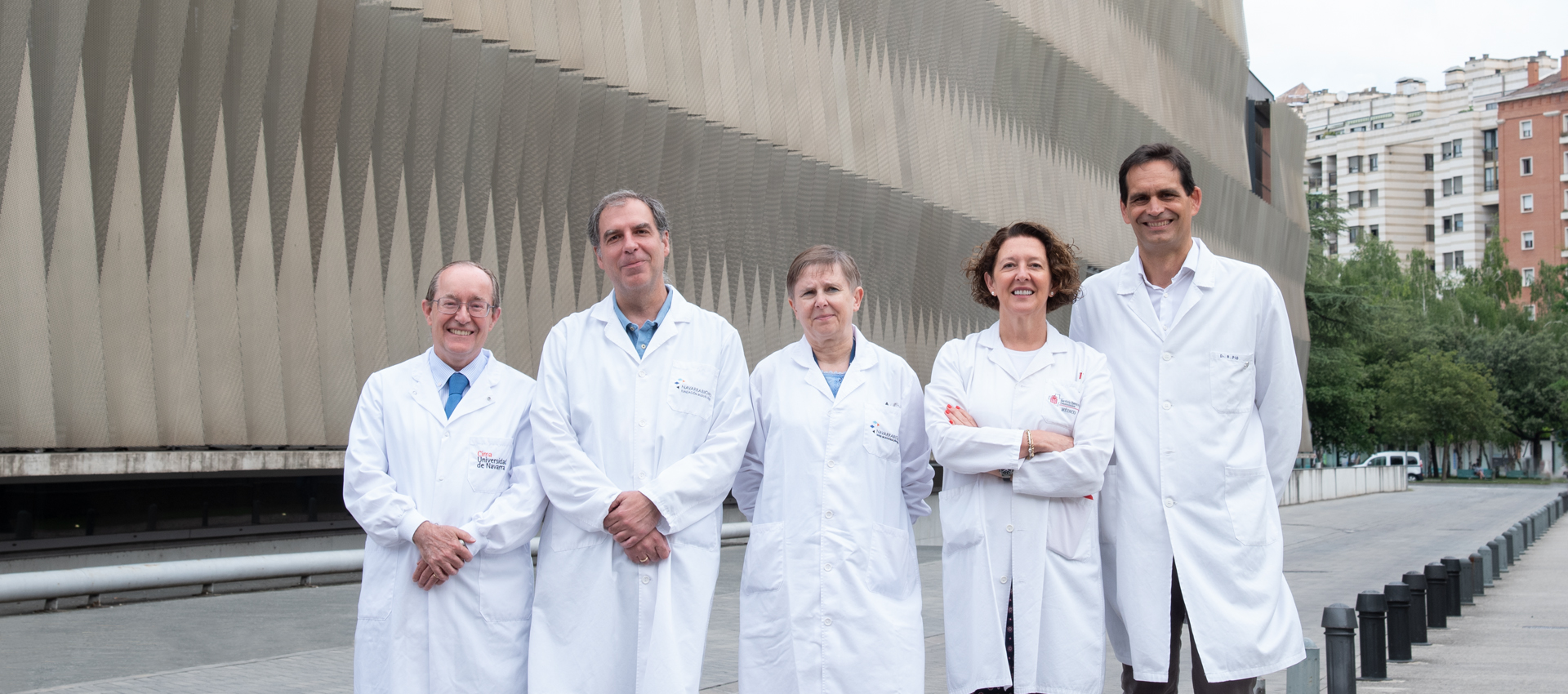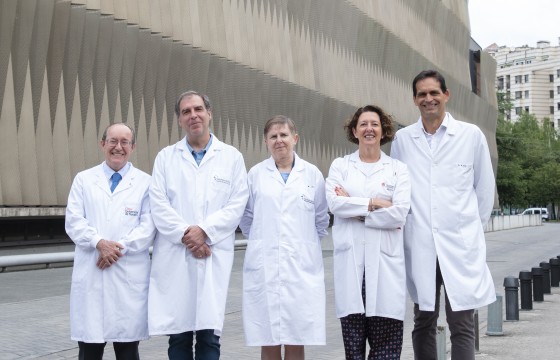
Navarrabiomed leads a multicenter study that could increase the efficacy of immune checkpoint blockade therapies in lung cancer
- Fractalkine was identified as a key biomarker associated to clinical response to immune checkpoint blockade therapy which could improve its efficacy in one of the four most frequent types of cancer
Navarrabiomed carried out a study in which the status of the immune system was evaluated in lung cancer patients before and during immunotherapy. The study showed that the quantities and diversity of immune cells (myeloid cells) in blood from patients who responded to immunotherapies was comparable to that of healthy individuals. Moreover, the researchers found that elevated concentrations of fractalkine were found in these patients. Fractalkine is a protein required for maintaining an active, functional immune system. These findings could lead to the development of new treatments and more efficacious immunotherapies by using this protein in conjunction with current therapies.
The results were published in the journal EMBO Reports. The project was coordinated by Dr. Ana Bocanegra and Dr. Grazyna Kochan, researchers at the Onco-Immunology Unit of Navarrabiomed headed by Dr. David Escors. The study was carried out in close collaboration with the department of Medical Oncology at Hospital Universitario de Navarra (HUN) led by Dr. Ruth Vera, and it was funded by grants from the Spanish Association Against Cancer, Carlos III Health Institute-ERDF and the Government of Navarra’s Ministry of Economic and Business Development.
Research development
The study identified fractalkine as a biomarker of response by associating elevated concentrations of the protein with a better response to immune checkpoint blockade therapies. This protein was also presented as a new therapeutic agent capable of increasing the efficacy of PD-1 immune checkpoint blockade therapies in animal models of lung cancer that were previously resistant to this therapy.
The authors reported that therapies that are more efficacious could be developed from these results in the medium/long term by using fractalkine to stimulate immunoreactivity and thus improve the response to immunotherapy.
“These results confirm the need for a functional immune system prior to the administration of immunotherapies and, most importantly, they open up a line of research in which the anti-tumor action of fractalkine can be enhanced. In the long term, fractalkine treatment in combination with immunotherapies could be assessed in clinical trials,” said Navarrabiomed researcher Grazyna Kochan.
Collaborative study
The research team from Navarrabiomed and HUN collaborated with multidisciplinary groups from Navarra, La Rioja and Madrid coordinated by professionals with a proven track record in cancer research and clinical care, including: Dr. Rubén Pío, Dr. Luis Montuenga and Dr. Juan José Lasarte from Cima Universidad de Navarra, Dr. Alejandra Roncero from Hospital Universitario San Pedro (Logroño, La Rioja), Dr. Carolina Gotera from Hospital Universitario Fundación Jiménez Díaz (Madrid), Dr. Alfonso Ventura from Centro de Salud Salazar-Ezcároz (Navarra) and Dr. José Pichel from Centro de Investigación Biomédica de La Rioja (CIBIR, Logroño). Patients and their family members at the HUN and residents in Centro de Salud Salazar-Ezcároz (Navarra) also participated in the study.
Caption > From left to right: Luis Montuenga (Cima), David Escors and Grazyna Kochan (Navarrabiomed), Ruth Vera (HUN) y Rubén Pío (Cima). Absent in the photo: Ana Bocanegra (Navarrabiomed).


